#geraldo vandré
Text
On November 15, 1889 there was the Proclamation of the Republic in Brazil through a coup. During the next 5 years Brazil was governed exclusively by the military and the period is considered a dictatorship.
We were born, as a republic, as a dictatorship.
From 1937 to 1945 we had another dictatorship, that of Getúlio Vargas, who was nicknamed Father of the Poor and Mother of the Rich. He is a controversial figure in Brazilian history because, despite being a dictator, he was and still is very popular. So much so that years later he was democratically elected and governed the country from 1951 to August 24, 1954, when he committed suicide.
Something I find very interesting about Getúlio Vargas is the letter he wrote, which gave his death a grandiose tone, like a hero who dies in a Greek tragedy. He portrayed himself as a martyr. In his words, "Nothing remains except my blood. I gave you my life, now I give you my death. I choose this way to defend you, for my soul will be with you, my name shall be a flag for your struggle.(...) Serenely, I take my first step on the road to eternity and I leave life to enter History."
Then there was the Military Dictatorship, which began on April 1, 1964 with the support of the United States of America, with the justification that they were protecting the country from the communists. It was a dark and violent period, marked by the loss of rights, torture, persecution, censorship. It lasted until 1985.
In less than 100 years Brazil has gone through three Dictatorships, none as inhuman and violent as the most recent one. And people ask for it back. They extol torturers as if they were heroes. I will never understand this. I will never accept that the first president elected by the people after Dilma, who fought against the dictatorship and was tortured, is the same man who said that Ustra, a torturer, was a hero.
But that's not the point. What I really want to talk about is the music produced in 1964-1985.
Cálice (Chico Buarque and Milton Nascimento).
“Pai, afasta de mim esse cálice”, translated to “Father, take from me this chalice” is a reference to a biblical passage.
Cálice sounds exactly like “Cale-se”, so the phrase is "pai, afasta de mim esse cálice" traduzido para “father, take from me this shut up”. A great pun, in my opinion. Here the “shut up” refers to oppression and censorship.
About the singers: both were censored several times during the Dictatorship. Buarque was exiled and Milton Nascimento was unable to see his son for almost 20 years, if he contravened these orders the military would kill his son.
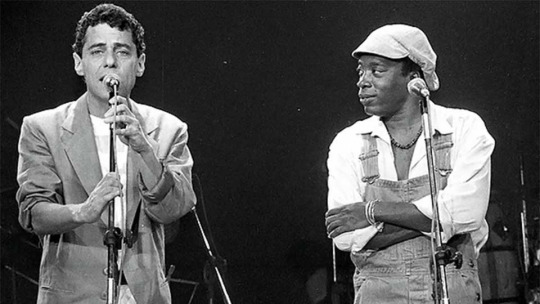
Pra não dizer que não falei das flores (Geraldo Vandré)
This song is an invitation to popular revolt. No one was going to overcome oppression by carrying flowers. The idea of "peace and love" does not make a revolution. It does not prevent people from being tortured and killed.
Geraldo Vandré also opted for exile. Fleeing the country was safer than staying.
"Along the fields there is hunger
Even with abundant plantations
And in the streets,
Streams of doubtful people
Who still take a flower
As the strongest symbol of their convictions
People who still believe that
Flowers can put down the rage of guns
Come on, let's go away
Because it's not wise to be waiting for
The wise does not let the chance pass by
He never waits for it to come
We see armed soldiers
Some of them were ever loved, others were not
Most are equally lost
Holding a gun in hand
In the headquarters, they are taught of
That old pretty lesson
'To die for the sake of the Land'
But to go on without an opinion"

Mosca na Sopa (Raul Seixas)
Raul Seixas wrote this song to mock the Military Dictatorship. He represented himself as the fly, because he always bothered the military.
Raul Seixas was tortured and exiled.
“I am the fly that landed on your soup
I am the fly that got here to abuse you
I am the fly that landed on your soup
I am the fly that got here to abuse you
I am the fly that landed on your soup
I am the fly that got here to abuse you
I am the fly that disturbs your sleep
I am the fly that is flying around in your room
I am the fly that disturbs your sleep
I am the fly that is flying around your room
And don't even bother coming to kill me
Cause I'm resistent even to DDT
Because you kill one and then another one comes to replace me”.

There are many other songs, but I made this text without planning and I wanted to post it soon. Maybe I'll put others later.
The translations of the lyrics of the songs were taken from internet sites, which I consider safer sources than I do.
#dictatorship#military dictatorship#brazil#1964#music#raul seixas#chico buarque#milton nascimento#geraldo vandré#Mosca na sopa#Cálice#Pra não dizer que não falei das flores
13 notes
·
View notes
Text
youtube
#i also really like this song#pra não dizer que não falei das flores#geraldo vandré#brazilian song#brazil#Youtube
2 notes
·
View notes
Text
O baile de Chico César, em casa
TEXTO E FOTOS: ZEMA RIBEIRO
Chico César se apresentou ontem (2), na Praça das Mercês, no Desterro, no Centro Histórico da capital maranhense, na programação do aniversário de 412 anos de São Luís. Cantou por pouco mais de hora e meia, numa demonstração de sua relação atávica, umbilical e orgânica com a cidade. Muita gente, ainda hoje, acredita que o paraibano é maranhense.
Prestes a completar…

View On WordPress
#alceu valença#Aldeia Tupinambá#Ao Arrepio da Lei#Aos vivos#bob marley#celso borges#charlie brown jr.#chico césar#djavan#dominguinhos#Edson Gomes#Espelho Cristalino#Fred Jorge#geraldo azevedo#geraldo vandré#Gledson Meira#Helinho Medeiros#humberto de maracanã#John D. Loudermilk#josias sobrinho#Juliette#Lana Ferreira#Larissa Humaitá#luiz ayrão#marcelo jeneci#Marielle Franco#música#Monumento da Diáspora Africana#Night Club Forró Latino (volume I)#Paul Anka
0 notes
Text
Assista a "Pra não dizer que não falei das flores" no YouTube
youtube
0 notes
Text
since i got such lovely recommendations, here are some, if you are trying to get into brazilian music/learn more portuguese, they're mostly bossa nova/mpb/alternative rock
lenine - martelo bigorna, candeeiro encantando, jack soul brasileiro, o silêncio das estrelas (one of the best songs ever made imo)
criolo - não existe amor em sp
geraldo vandré - pra não dizer que não falei das flores (amazing and beautiful song, it was written during the brazilian military dictatorship, so check out the lyrics)
cartola - preciso me encontrar (a classic)
chico buarque - cálice (a classic as well, also written during the brazilian military dictatorship, the word calice is an analogy to the word cale-se, or shut up, that was how they were able to release this song without going arrested)
renato russo - mais uma vez (legião urbana's lead singer solo project)
vanessa da mata - boa sorte/good luck, amado
supercombo - ela, memorial, aos poucos (alternative rock!!)
bella e o olmo da bruxa - neon genesis evangelion (alternative rock sprinkled with a little brazilian surfer rock)
pitty - teto de vidro (alternative emo rock)
banda do mar - mais ninguém (amazing song, dont look up the story of the band tho haha)
118 notes
·
View notes
Text
it rlly annoys me a bit when ppl complain abt lucy gray singing too much, not only bc it's such a bad take (the movie/book's name is the BALLAD of songbirds and snakes), but bc also music has such a big part in resistance against oppression
lucy gray's songs (specially the hanging tree) remind me a lot of brazilian songs made during the dictatorship. there was a heavy censorship going on and a lot of artists were afraid, and a lot of songs were getting censored... but they still wrote it. they used lyrics to trick the censor system so they wouldn't notice how they were screaming for freedom and against violence in these songs. they are so beautiful, dark and powerful and, again, they remind me so much of "the hanging three" for this.
"come, let's go away, because it's not wise to be waiting for. the wise does not let the chance pass by, he never waits for it to come."
that's a translated part of the music "para não dizer que eu não falei das flores", from geraldo vandré, and even though this specific part hits hard for me, the whole song SCREAMS hanging tree for me.
the point is: both the book and the movie make a point abt how music and songs are a way of resistance. and they don't need to have straight up direct lyrics for this. there's multiple ways to resist.
15 notes
·
View notes
Text
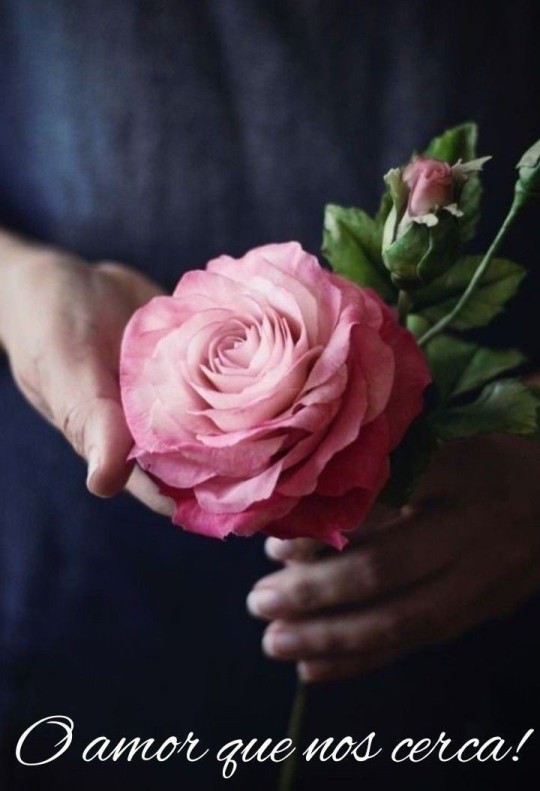
Pra Não Dizer Que Não Falei Das Flores (Geraldo Vandré)
Caminhando e cantando
E seguindo a canção
Somos todos iguais
Braços dados ou não
Nas escolas, nas ruas
Campos, construções
Caminhando e cantando
E seguindo a canção
Vem, vamos embora
Que esperar não é saber
Quem sabe faz a hora
Não espera acontecer
Pelos campos, há fome
Em grandes plantações
Pelas ruas, marchando
Indecisos cordões
Ainda fazem da flor
Seu mais forte refrão
E acreditam nas flores
Vencendo o canhão

39 notes
·
View notes
Text
Headcannons br musicais de bsd 🇧🇷
parte um
Edgar allan poe
O Astronauta de Mármore. (Starman) - Nenhum De Nós

Edogawa ranpo
Velha infância - Tribalistas
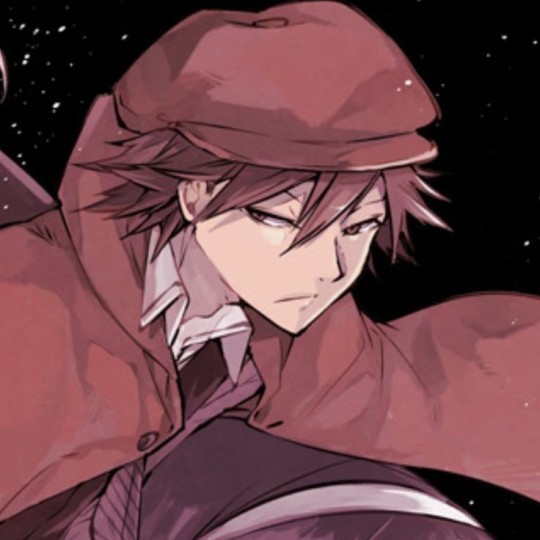
Kyouka Izumi
Malandragem - Cássia Eller.

Odasaku
O que é, O que é? - Gonzaguinha
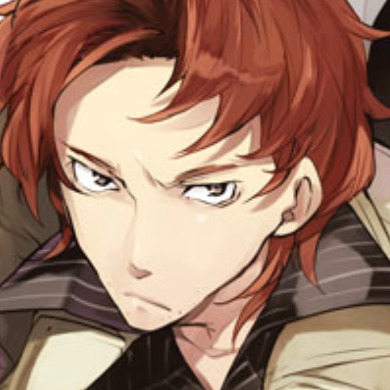
Akutagawa
Ainda Gosto Dela - Skank

Yosano Akiko
Mulher De Fases - Raimundos
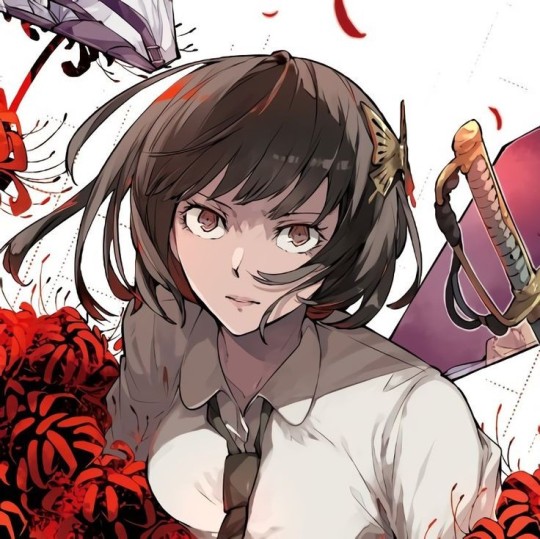
Dazai osamu
Homem com H - Ney Matogrosso

Tempo perdido - Legião urbana
Tanizaki Junichiro
Sutilmente - Skank

Fukuzawa yukichi
Pra não dizer que não falei das flores - Geraldo Vandré

Parte dois...
#Bsd#bsdheadcanon#bsdsong#mpb#songcaracter#bsd#music#headcanon#bsd kenji#bsd dazai#bsd yosano#bsd ranpo#bsd fukuzawa#bsd edgar allan poe#brazillian song#música brasileira#Spotify#basgirl#spotify
13 notes
·
View notes
Text
youtube
Geraldo Vandré - Réquiem para Matraga
4 notes
·
View notes
Text

Geraldo Vandré
Um ilustre aniversariante de 12 de setembro: o cantor, compositor e poeta Geraldo Vandré. Entre suas canções, “Pra não dizer que não falei das flores”, de 1968, hino de resistência à ditadura militar.
Veja mais em:
Semióticas – O poder da flor
https://semioticas1.blogspot.com/2016/10/flower-power-o-poder-da-flor.html
4 notes
·
View notes
Note
5, 7, 15, 24
5. favourite song in your native language?
-> don't make me choose, oh god, uh... I've been crying over this one again, so let's go with that: Pra não dizer que não falei das flores - Geraldo Vandré
7. three words from your native language that you like the most?
-> "corno", it means someone with horns, but the actual meaning is someone who was cheated on. "pivete", this is a sort of mean way to refer to kids, but not that mean. "saudade", this is not translatable at all, but what it sort of means is a deep longing, usually mixed with sadness and melancholy, for something, weither or not you can see it again.
15. a saying, joke, or hermetic meme that only people from your country will get?
-> i have a few that im deeply sad that gringos won't get: "retroescavadeira do Cid Gomes", "senhora? senhora", and take your horse out of the rain.
24. what other nation is joked about most often in your country?
-> besides the USA because of historical issues and because we hate them? Portugal and Argentina. Portugal also due to historical things (cof cof colonisation) and Argentina.. I'm not sure? Soccer, maybe?
1 note
·
View note
Text
Lourival Tavares apresenta “Canto Encanto – A noite dos menestréis” no Bar do Léo
[release]
Marcos Lussaray e Lourival Tavares em show no Teatro da Cidade (2014). Foto: Zema Ribeiro/ Divulgação
Artista será homenageado pela Festa da Música do Maranhão; no show, Lourival Tavares será acompanhado por Marcos Lussaray (violão e guitarra) e terá as participações especiais de Erasmo Dibell, Gildomar Marinho, Joãozinho Ribeiro, Sérgio Habibe, Tutuca Viana e Wilson Zara
O cantor e…
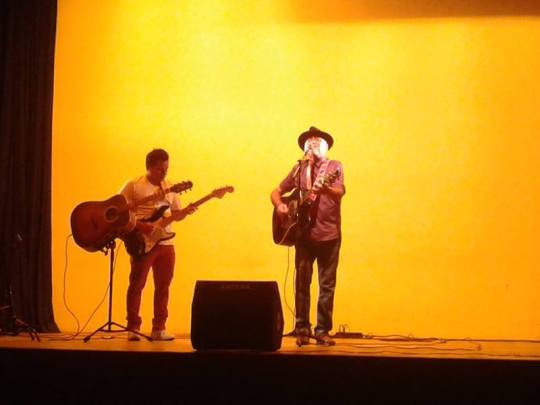
View On WordPress
#Éden Bentes#bar do léo#betto pereira#caetano veloso#Canto Encanto – A noite dos menestréis#Catulo da Paixão Cearense#celso borges#erasmo dibell#Festa da Música do Maranhão#geraldo vandré#gilberto gil#gildomar marinho#jackson do pandeiro#joão bosco#joão do vale#joãozinho ribeiro#josias sobrinho#lourival tavares#luiz gonzaga#marcos lussaray#No batuque do coração#Patativa do Assaré#Prêmio Papete#sérgio habibe#show#Silvio Caldas#tutuca viana#wilson zara
0 notes
Text
Confira a letra da música “Porta Estandarte” de Geraldo Vandré
0 notes
Text
youtube
filme "A Hora e a Vez de Augusto Matraga" (Roberto Santos, 1965)
Filme completo: link.
Alternativa completa em 2 partes: parte1, parte2.
Assista também a ópera Matraga.
Sinopse: Augusto Matraga é um fazendeiro violento, que é traído pela esposa, emboscado por seus inimigos, acaba massacrado e é dado como morto. Ele acaba sendo salvo por um casal e, desde então, volta-se para a religiosidade. Mas quando conhece Joãozinho Bem Bem, um jagunço famoso, este percebe nele o homem violento. Daí em diante Matraga vive o conflito entre o desejo e a vingança e sua penitência pelos erros cometidos.
Wikipedia do filme
Geraldo Vandré - Canções do Filme
Críticas
Programa Diversidade
Instituto Humanistas Unisinos
Artigo "O sertão em cena" (2010)

------------------------------------------------------
Conto "A Hora e Vez de Augusto Matraga", de Guimarães Rosa
Sinopse: Conta a história de Augusto Esteves, filho de Coronel, homem "duro e doido e sem detença, como um bicho grande do mato", "estúrdio, estouvado e sem regra", que, no mesmo dia, é abandonado pela esposa e leva uma enorme surra de seus desafetos, escapando à morte por pouco. É acolhido por um casal muito pobre, que cuida dele e salva sua vida. Arrependido de sua vida desregrada, Nhô Augusto ouve do padre que deve rezar e trabalhar, que sua hora e vez um dia vão chegar, e decide que vai entrar no céu, mesmo que seja "a porrete". Passa vivendo de forma humilde, trabalhando para o casal que o salvou e ajudando seus vizinhos, até começar a sentir falta de sua antiga valentia. E, um dia, chega à vila o bando do jagunço Joãozinho Bem-Bem. Fascinado pelos homens ferozes e armados, Nhô Augusto oferece hospedagem ao grupo em seu sítio. O chefe jagunço o convida para se juntar a eles, mas Nhô Augusto não aceita. Entretanto, depois de um tempo, decide partir e acaba encontrando novamente o bando, que está em missão de vingança contra um velho e sua família. Ao ouvir o que Joãozinho Bem-Bem pretende fazer com os filhos do velho, Nhô Augusto decide que não pode permitir, e desafia o amigo jagunço. Os dois combatem, ambos morrem, e Nhô Augusto recupera sua dignidade.
- (Vídeo) Guimarães Rosa - Entrevista raríssima em Berlim (1962)
- Profª. Ms. Maria Laura Muller
- Wikipedia do Conto
- (Vídeo) José Miguel Wisnik, Professor de Literatura Brasileira (USP)
- (Vídeo) Resumo e análise (UFPR 2023)
- (Vídeo) Análise do professor Lucas Limberti (Unicamp)
- (Vídeo) Resumo + Análise (leio, logo escrevo)
- (Vídeo) Carecas de Saber Videoaulas
- (Vídeo) Resenha
- Artigo "A manifesta ficcionalidade e a estrutura triádica" (2016)
- Artigo "Entre a coragem e o medo" (UFRN 2018)
- Artigo "A Honra Como Reafirmação da Identidade Masculina" (UFPB 2015)
- Artigo "Prefiguração e Transcendência" (UFRJ 2022)
------------------------------------------------------
0 notes
Video
youtube
CANTOR SÍMBOLO DA LUTA CONTRA A DITADURA SOFREU "LAVAGEM CEREBRAL" PARA ...
Passou como Julian Assange, pela mesma forma de tortura bloqueio Que Deus abençoe ilumine sempre esses grandes homens.
POR ISSO EU GRITO.... DITAAADUUURAAA NUNCAAAA MAISSSS!
Nós amávamos as músicas de Geraldo Vadré era um grito sufocado contra ditadura militar!!!
O regime militar calou a voz de um homem vivo, mas as músicas que ele compôs e cantou estão imortalizadas.
Difícil é imaginar o que fizeram com ele. Mas deixou em muito brasileiros, o orgulho de ser brasileiro.
Tempos tenebrosos mas de poesias imortais. Gratidão
Meu Deus, sabe lá o q fizeram c ele durante os malditos trinta dias, certamente q foi massacrado, sob tortura e ameaças, que interrompeu sua brilhante carreira, e o calou para sempre. Por esse e outros acontecimentos, que ficam covardemente impunes, que não acredito em justiça. Geraldo Vandré, o que aconteceu c vc foi tão marcante que nunca esquecerei, amo essa música, eu ainda era uma criança, e me lembro dos rumores, e dos jovens da minha família torcendo e sofrendo por você…o que assim como eles, vou guardar para sempre nas minhas lembranças!
Excelente cantor e compositor. Está no nível do Chico Buarque que também foi exilado. Nós sabemos que a ditadura fez grandes estragos e com isso perdemos o grande Geraldo Vandré. Ficou alguma coisa na memória. Quando alguém perguntou ao presidente João Figueiredo sobre ganhar salário baixo que não dava pra comprar o necessário para sobreviver, o presidente respondeu: daria um tiro na cabeça. São coisas que marcaram muito!
O mais trágico foi não terem feito uma auditoria nesse caso do Geraldo Vandré, o que considero uma covardia e maior crime de traição aos direitos humanos no Brasil.
Eis o horror de uma ditadura... e tem gente que deseja ressuscitá-la... em tempos atuais...
Não consigo entender, porque tantos em pleno século 21 ainda defendem o ASNO, que nunca se prestou a nada.
Essa música me ajudou a crescer e acordar para a vida.
3º Festival Internacional da Canção Popular (06/10/1968)
A edição III Festival Internacional da Canção de 1968 entrou para a história da MPB pela tônica de protesto ao regime militar, tanto nas canções como na reação do público
CANTOR SÍMBOLO DA LUTA CONTRA A DITADURA SOFREU "LAVAGEM CEREBRAL" PARA ... FAMÍLIA!
https://youtu.be/bRkuGr6VrxQ?si=zBPmvc54IkJ62018 via @YouTube
0 notes
Text
youtube
Comemoração do 25 de Abril em portugal
Em memória de Geraldo Vandré, brutalmente torturado e assassinado pela ditadura brasileira
Em memória de todos os músicos ativistas políticos que tiveram suas letras proibidas e censuradas por produtores maçons cujo objetivo é imbecilizar a população e, como explicado em Brave New World order, controlá-la através do pecado.
Pela defesa do Woodstock político, e das letras de música santas, que constroem a população, ao invés de a imbecilizar.
Eis que Deus vingou a vida de Vandré. A ditadura assassinou Vandré, e colocou um fantoche no seu lugar, para provar que ele virou apoiador da ditadura.
Vou comemorar todos os fantoches que Deus preparou, até o final da minha vida
Bolsonaro
Kim Kataguiri
Mamãe Falei
Nando Moura
Javier Milei
Infinitos mais
Deus lutou por mim, Deus levou os meus inimigos. Glória a Deus.
0 notes